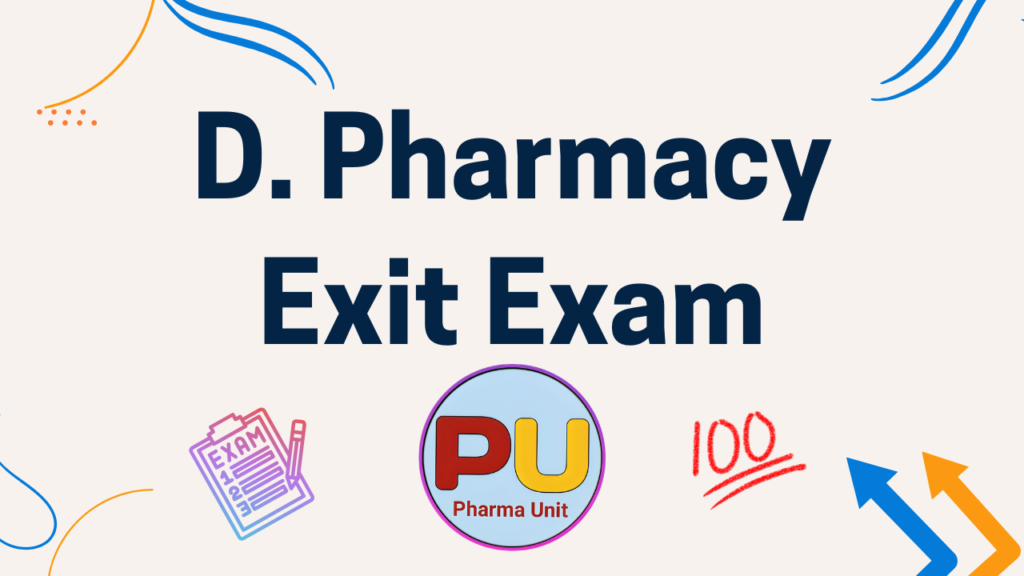If you’re pursuing a Diploma in Pharmacy (D. Pharm) from the 2022 batch onward, the D. Pharmacy Exit Exam is now a mandatory step before you can register as a licensed pharmacist in India. Introduced by the Pharmacy Council of India (PCI) under the Education Regulations (ER-2020), this exam ensures that all graduates meet the required competency standards to practice safely and effectively.

Who Needs to Appear?
The Exit Exam is required for:
a) Students admitted to D. Pharm programs from 2022–2023 onwards.
b) Graduates who have completed the 2-year D. Pharm course and 500-hour internship.
If you finished your D. Pharm before 2022, you do not need to take this exam and can register with your State Pharmacy Council under the older rules.
How to Crack the Exit Exam?
To pass the Exit Exam, focus on both theory and practical knowledge from your D. Pharm curriculum. Here’s how:
1) Understand the Syllabus:
The exam will test key areas including pharmaceutics, pharmaceutical chemistry, pharmacology, pharmacognosy, pharmacy law and ethics, and clinical/hospital pharmacy. Be clear on concepts, drug uses, and practical applications.
2) Practice MCQs:
Since the exam is expected to feature multiple-choice questions, regularly practice MCQs from textbooks, previous question papers, and online resources to build speed and accuracy.
3) Strengthen Practical Skills:
Be confident in dosage form preparation, dispensing techniques, patient counselling, and pharmacy calculations. These are essential for both the exam and real-world practice.
4) Stay Updated:
Follow official PCI notifications for syllabus updates, exam dates, and format changes.
5) Revision and Study Groups:
Revising regularly and discussing tricky topics with peers can help solidify your understanding and reduce last-minute stress.
Final Words
The Exit Exam is now a crucial milestone for D. Pharm students. Passing it ensures that you are competent to register as a pharmacist and opens doors to jobs in community pharmacies, hospitals, pharmaceutical companies, and regulatory roles. Focused preparation, consistent practice, and clarity of concepts are the keys to cracking it. Approach the exam with confidence, and it will set the foundation for a successful pharmacy career.
Read about job opportunities and salaries after D. Pharmacy.
